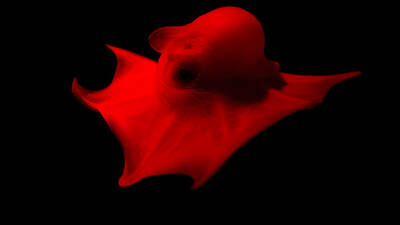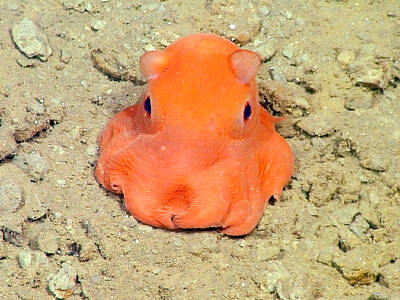When you think of kites, you might think of people in the park, flying kites for fun. In fact, throughout their history, kites have been used for much more than amusement. They have evolved over time and brought about numerous benefits to civilization.
The earliest record of a kite is from Mo tzu, a philosopher during China’s Eastern Zhou Dynasty (770 BC–221 BC). His kite was a bird made of wood with a string attached to it. During the Eastern Han Dynasty (25 AD–220 AD), “paper kites” emerged, and kites were formally named. They originally helped soldiers measure distances and wind direction.
As kites spread to other parts of Asia, each country developed a distinctive way of using them. In Japan, kites became part of religious ceremonies. They were used to bring good luck to harvests. In Korea, kites were flown to symbolize the letting go of bad luck and welcoming of good fortune.

Photo courtesy of UNSPLASH / 照片:UNSPLASH提供
Kites were first brought to the Western world by Marco Polo, who supposedly first saw a kite in 1282. In the 16th and 17th centuries, other sailors also brought kites back from expeditions to the East. They were used in science experiments, such as Benjamin Franklin’s 1752 experiment with electricity that led to the invention of the lightning rod. Experimentation with kites also caused a breakthrough that led to the invention of the airplane. Since World War II, though, kites have been mainly used as a source of entertainment. Nevertheless, it’s interesting to know that this simple toy has more than 2,000 years of history behind it.
當想到風箏時,你可能會想到公園裡的人們,為了好玩而放風箏。事實上,縱觀風箏歷史,它的用途遠遠不止娛樂。風箏隨著時間的推移演變,並為文明帶來了無數的好處。
最早的風箏紀錄來自中國東周時期(西元前770年至前221年)的思想家墨子。他的風箏是一隻木製的鳥,上面繫著一根繩子。東漢時期(西元25年至220年),「紙鳶」出現,風箏正式命名。它們最初被用於協助士兵測量距離和風向。
隨著風箏傳播到亞洲其他地區,每個國家都發展出各自獨特的使用方式。在日本,風箏成為宗教儀式的一部分。它們被用來替收成祈福。在韓國,放風箏則象徵著驅除惡運,迎接好運。
風箏最早是由馬可波羅帶到西方世界的,據說他在西元1282年第一次看到了風箏。在西元16世紀及17世紀,其他水手也藉由遠征東方將風箏帶回到西方。它們被用於科學實驗,例如班傑明富蘭克林在西元1752年的電學實驗,該實驗促成了避雷針的發明。和風箏相關的實驗過程也帶來重大突破,造就了飛機發明。雖然自第二次世界大戰以來,風箏主要被用作娛樂用途。然而更有趣的是,了解這項簡單的玩具背後竟有超過兩千年的歷史。
MORE INFORMATION
symbolize vt. 象徵;代表
supposedly adv. 據說;大概
lightning rod 避雷針
experimentation n. 實驗(過程或方法)
KEY VOCABULARY
1. amusement n. 娛樂;消遣
The mother put on a funny movie about a talking dog for the children’s amusement.
那位母親放了一部關於會說話的狗的搞笑電影,供孩子們娛樂。
2. bring about 引起;導致
Johnny and Amber’s constant arguing about money brought about their divorce.
強尼與安柏不斷為錢爭吵,進而導致他們離婚。
3. numerous adj. 許多的;大量的
I’ve met Carol on numerous occasions, but she still has trouble remembering my name.
我和凱羅已在許多場合中見過面,但她仍無法記住我的名字。
4. civilization n. 文明;文化
Some of the earliest civilizations were formed in modern-day China, Iraq and Mexico.
一些最早期的文明是在現今的中國、伊拉克和墨西哥形成的。
5. philosopher n. 哲學家;思想家
Socrates, the ancient Greek philosopher, had a profound impact on Western thought and ideas.
古希臘哲學家蘇格拉底對西方的思想與觀念有著深遠的影響。
6. dynasty n. 王朝;朝代
Several dynasties with different emperors ruled China in the past. 數個有著不同帝王的朝代在過去統治著中國。
7. ceremony n. 儀式;典禮
My sister’s wedding ceremony was held in a village church. 我姊姊的結婚典禮是在一座村莊的教堂舉行。
8. let go of 放走;放開;放下
let go of sb/sth 放開某人/某事
Sarah didn’t want her children to leave home, but they’d grown up, so she had to let go of them.
莎拉不想要她的孩子們離開家,但他們都已經長大成人,所以她必須放他們走。
9. expedition n. 遠征;探險
The adventurer’s lifelong dream is to go on an expedition to Antarctica.
那位冒險家的畢生夢想就是遠征南極探險。
學習音檔: https://magazine.english4u.net/Magdata/menu/haala
《空中美語》雜誌APP免費下載: https://www.english4u.net/apps/index.aspx
免費收聽當月《空中美語》雜誌課文朗讀及解析 !
文章由AMC空中美語授權使用: https://www.english4u.net

A: In addition to “Mission: Impossible 8,” what other new movies are in theaters? B: “Final Destination: Bloodlines” and “The Wedding Banquet” are out. The French film “Jane Austen Wrecked My Life” will also open soon. A: The Final Destination horror movie series is so scary that I don’t dare watch it. B: Then how about “The Wedding Banquet,” which is a 2025 remake of the 1993 classic of the same title? Oscar-winning actress Youn Yuh-jung’s performance in it is highly anticipated. A: But as a fan of British writer Jane Austen, I’m more interested to see how her works

The deep waters off the coast of California are home to a bizarre creature: the flapjack octopus. This creature, known for its pancake-like appearance, spreads itself thin on the seabed as a clever survival strategy, making it difficult for predators to spot and capture it. With its unique, umbrella-shaped body formed by webbed arms, the flapjack octopus moves through the water in a graceful manner. It propels itself forward by rhythmically moving its body and contracting its webbed arms. Its pair of ear-like fins, which move independently yet with remarkable coordination, also help it explore the deep-sea environment. These

Bilingual Story is a fictionalized account. 雙語故事部分內容純屬虛構。 I stand by the Miluo River as dusk falls. The court betrayal is too much. I served Chu with loyalty. I forged alliances and fought corruption. But the whispers of jealous courtiers, the murmurs of treason, spoke louder. The king cast me out. The water looks calm. It promises peace. I step in. The river is cold against my legs. I hear shouts behind me — fishermen calling my name. I keep walking. The calls grow louder, but I do not turn around. The water rises to my chest. It pulls at me. I

Continued from yesterday(延續自昨日) https://www.taipeitimes.com/News/lang Many people may be familiar with flapjack octopuses thanks to Pearl, a charming character from the Pixar film Finding Nemo. However, her portrayal presents several scientific inaccuracies. In reality, flapjack octopuses are deep-sea creatures, which are unsuitable for the brightly lit shallow reef environment depicted in the film. Their primary defense mechanism relies on their reddish coloration, which would be ineffective in the well-lit shallows. Pearl’s famous line, “You guys made me ink,” is another fictional detail that is not consistent with the observed actions of real flapjack octopuses. As common as it is in many other octopus